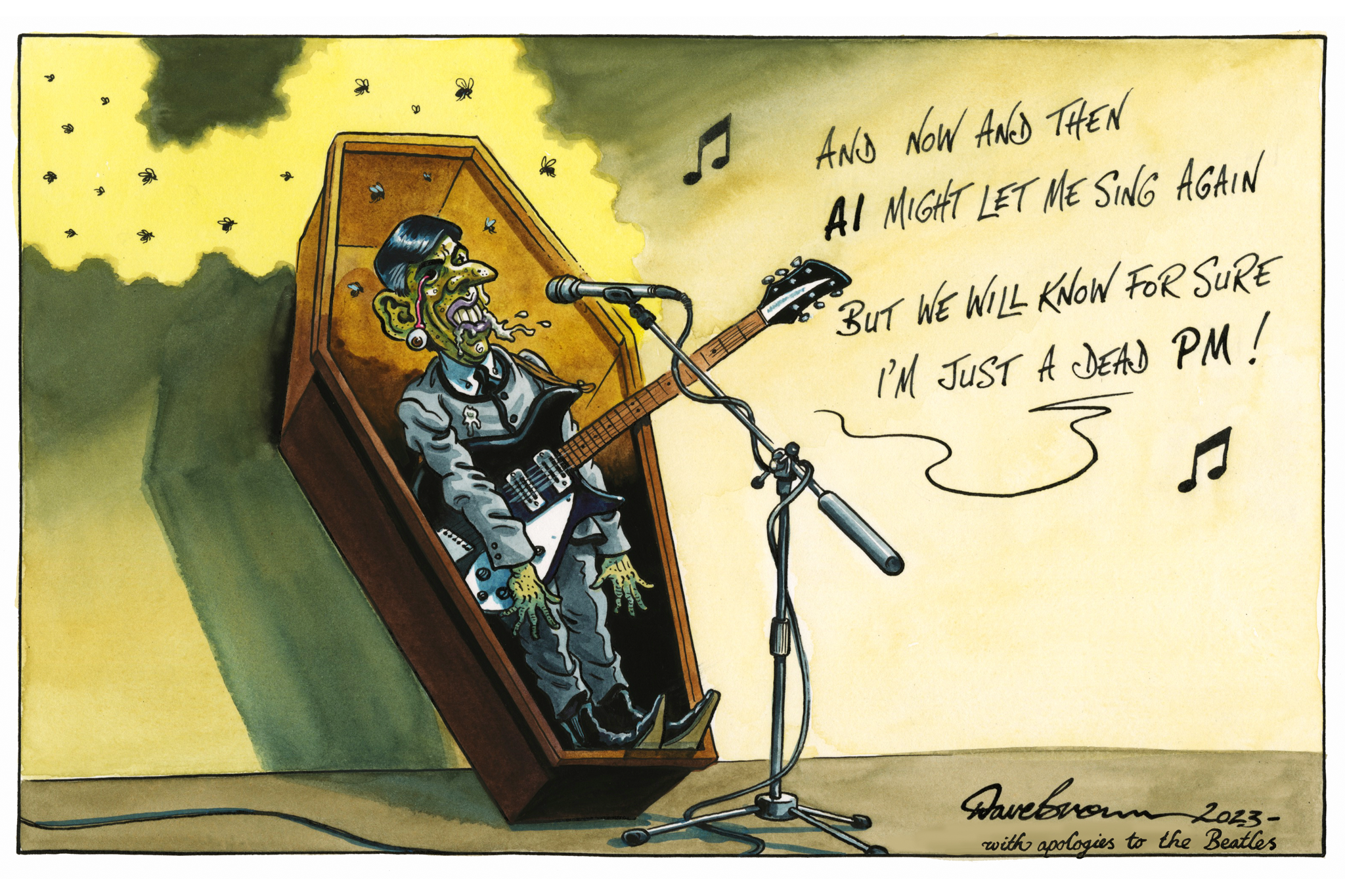The AI summit was a good first step – but we must be vigilant about the dangers of artificial intelligence
Editorial: There is a general election coming next year, which will collide with AI, deepfakes and sophisticated fake news for the first time. Are we prepared to meet the challenges this technology poses?

Artificial intelligence (AI) presents enormous global opportunities: it has the potential to transform and enhance human wellbeing, peace and prosperity. To realise this, we affirm that, for the good of all, AI should be designed, developed, deployed and used, in a manner that is safe, in such a way as to be human-centric, trustworthy and responsible.”
The first words of the historic Bletchley Declaration represent a breakthrough in international diplomacy, bringing the cooperative habits and conventions of a rules-based system to this powerful new technology for the first time.
The AI summit chaired by the prime minister that brought forth the declaration has been a remarkable achievement – crowned, appropriately, by an agenda-setting address by the King, and concluding with a filmed dialogue between Rishi Sunak and Elon Musk. With the summit being held in the evocative surroundings of Bletchley Park, where Alan Turing did so much of his pioneering work on computing, the proceedings have a heady atmosphere.
There is a sense of the dawn of a new technological age, and a rare optimism in these times that international partnership is essential to prevent such a promising phenomenon as AI turning bad for humanity. For an analogy, the closest would be the various treaties signed by the superpowers to limit atomic testing and thermonuclear arsenals in the decades after the Second World War.
Mr Sunak may not have always lived up to his promise politically, but in the diplomatic sphere his brand of rational application is paying off. He has repaired the UK’s relations with the European Union with the Windsor Agreement, reached a new entente cordiale with Emmanuel Macron, and renewed the Atlantic partnership. On Ukraine and on the Israel-Hamas conflict he has struck broadly the right note, and, after the gyrations of his immediate predecessors, shown that Britain is still a reliable ally. The Bletchley Declaration deserves to be recognised as another signal achievement. To get America, China, the EU, India, Israel, Turkey, Saudi Arabia and others to sign up to even a vague set of principles is a breakthrough.
But this is the beginning of a long and probably indefinite journey. We cannot know how AI will change our world, but we may be certain – because it is already happening – that it will mean a dynamic and unpredictable process of adjustment. Realities will have to be redefined. As Mr Musk comments, human beings may not be the strongest or fastest of creatures on Earth, but they have always been the most intelligent. Now comes the prospect of a new kind of entity that will be more intelligent than humanity. As Mr Musk also famously said, “let that sink in”.
The British government would like a new international AI agency to be based in Britain. That would be a good idea, and build on the country’s existing strengths, but may be too ambitious for the time being. Nation states, naturally, will focus on their own regulatory agencies – but there is agreement that the management of AI, by its nature, has to be an international enterprise.
Not only that, but all the nations involved agree that they must focus on: “Identifying AI safety risks of shared concern, building a shared scientific and evidence-based understanding of these risks, and … building respective risk-based policies across our countries to ensure safety in light of such risks, collaborating as appropriate. This includes, alongside increased transparency by private actors developing frontier AI capabilities, appropriate evaluation metrics, tools for safety testing, and developing relevant public sector capability and scientific research.”
That means that Big Tech will be a partner rather than assumed to be an enemy in the safe development of AI, the only practical way to harness and steer such powerful trans-global corporations.
Plainly AI carries huge risks for the future, but there’s no need at present to obsess about Matrix or Terminator-style futures. In the case of the UK there is a general election coming next year, which will collide with AI, deepfakes and sophisticated fake news for the first time. We have a new government department for science and innovation, but not yet much sign of the various existing regulatory agencies doing much about the early abuses of AI that are already apparent.
The King’s Speech ought to contain some specific amendments to legislation to better safeguard the integrity of elections, because this is becoming a matter of some urgency. If Mr Sunak wants Britain to lead the world in AI that is “human-centric, trustworthy and responsible”, he may as well set an example at home. Maybe he could get AI to help him?
Join our commenting forum
Join thought-provoking conversations, follow other Independent readers and see their replies
Comments
Bookmark popover
Removed from bookmarks